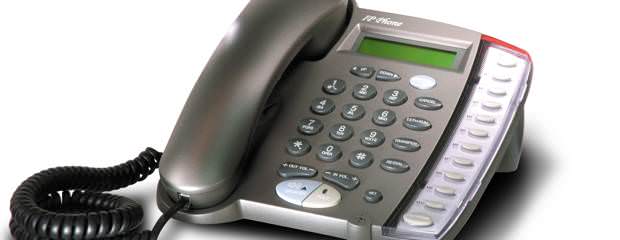
How to choose the right business phone system
Despite the prolific impact email, mobile phones and tablets have had on businesses, the traditional desk phone remains its most important communication tool.
The 'landline' confers legitimacy to your business
The 'landline' confers legitimacy to your business and provides a virtual shop front for organisations, no matter what their core business may be.
With the increased popularity of hot-desking, flexible working hours and remote working, the challenge for the industry has been to allow businesses to take their calls wherever, whenever.
Enter VoIP (Voice over Internet Protocol). The humble desk phone is no longer only capable of taking and transferring calls, and retrieving voicemail. With VoIP (Voice over Internet Protocol), an entire array of time and cost-saving features, from voicemail to email and click-to-dial, have become without warning available to businesses of all sizes. With hosted VoIP (Voice over Internet Protocol), businesses deploy a system that doesn't just reduce call costs, however improves broader processes and communication within your business.
Fixed line analogue systems are the traditional system that are in operation in most businesses today. This system is rapidly decreasing in popularity as most businesses now recognise that VoIP provides cheaper call rates. This system is internally managed and stable, and does not require much maintenance. Nevertheless, it is feature-poor, and can get very expensive.
ISDN service for inbound calls
This solution involves an ISDN service for inbound calls and VoIP for outbound calls. A hybrid solution is taking everything into consideration bought around the promise of cheaper calls and a consequent reduction in phone bills. The solution is internally managed. The research can be quite confusing for someone who is not a specialist in VoIP, making the entire environment difficult to manage. This system does have an increased feature set, nevertheless often has poor quality outbound calls. The system as well needs to be refreshed and upgraded every five to seven years.
This solution is an internally managed and maintained VoIP phone system. It is very feature-rich and provides functionality that fixed line analogue systems cannot. Some of these features may include hunt groups, voicemail to email, and cheaper calls. An IPBX is a complex piece of equipment and requires constant monitoring and maintenance by a VoIP specialist. It is as well difficult to physically move, which you'll need to consider if you anticipate moving offices. The full capability of the product is often not utilised as so then, due to insufficient knowledge about the system within the organisation, or poor training of staff. This system will as well need to be refreshed and upgraded every five to seven years.
This system provides all the benefits mentioned above of an IP PBX (Private -Automatic- Branch Exchange), without the hassle. The system is externally managed by VoIP specialists, which means that internal IT managers will not need the skills or the time required to maintain it. Most hosted VoIP providers as well offer in-built redundancy capabilities. A hosted VoIP system's full feature set is more likely to be accessed and utilised, as often account managers are able to run the company through each feature and enable or disable them easily. These features should provide broader business efficiencies, not just reduce call costs. For instance, you should be able to monitor incoming calls to your sales team to determine when the most calls come in, so that you can staff consequently.
Issue with a hosted system as all offices
Geography is as well no longer an issue with a hosted system as all offices and remote locations can be connected via the same phone network. This means that calls can be transferred between offices, and the organisation receives just one phone bill for the entire company's phone usage. With most hosted VoIP providers as then, constant upgrades are delivered throughout the contract.
Perfect for: Multiple-sited business with over 20 people, where the phone is an essential communication tool, with no in-house VoIP experts.
The important thing to remember is that your phone system is your most important communication tool, so don't cut corners just to save a few hundred dollars a month. The system you go for will largely depend on your size and your requirements, and as well remember that if you decide to implement VoIP for your business, it is more often about the broader business benefits it will deliver to your business or rather than saving money on some phone calls. Being able to redeploy two people in the organisation to different tasks translates to a far healthier bottom line than simply saving 10 percent of your phone bill each month.
- · Rackspace debuts OpenStack cloud servers
- · America's broadband adoption challenges
- · EPAM Systems Leverages the Cloud to Enhance Its Global Delivery Model With Nimbula Director
- · Telcom & Data intros emergency VOIP phones
- · Lorton Data Announces Partnership with Krengeltech Through A-Qua⢠Integration into DocuMailer
